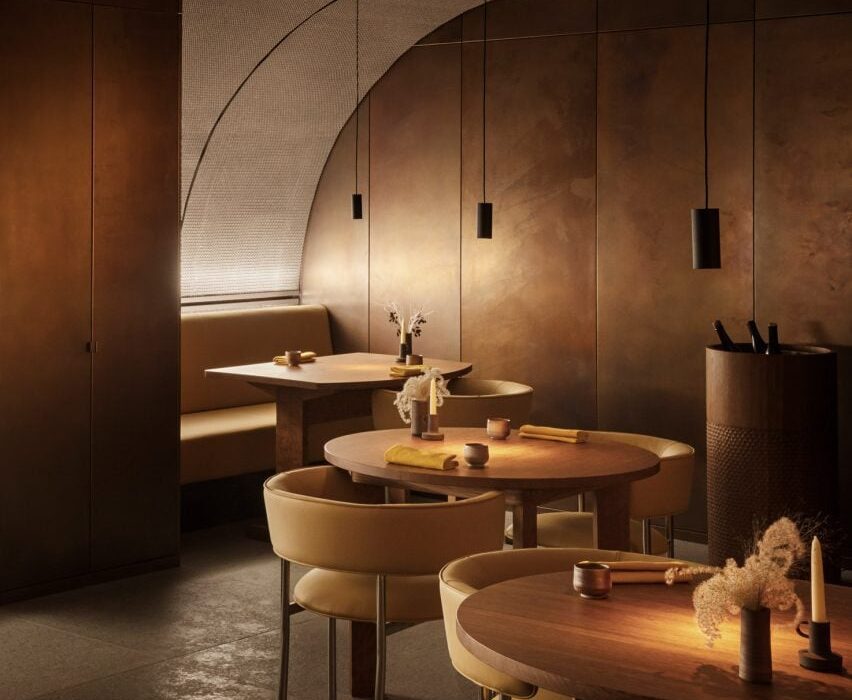Restaurant interiors with natural finishes have been popular on Pinterest this week, including a beach club restaurant in London and a Japanese restaurant in Canada featuring paper lanterns. Follow Dezeen on Pinterest and read on to find out more about the projects.
Pinners have been predominantly drawn to the Dezeen’s boards that feature restaurant interiors. The most popular have soft, warm lighting schemes and make use of natural materials and wooden furniture.
A sushi restaurant in Dubai stood out due to its black tiles, grey plaster and dramatic lighting.
Scroll down to see eight popular projects pinned on Dezeen’s Pinterest and browse our restaurants Pinterest board to see more projects.
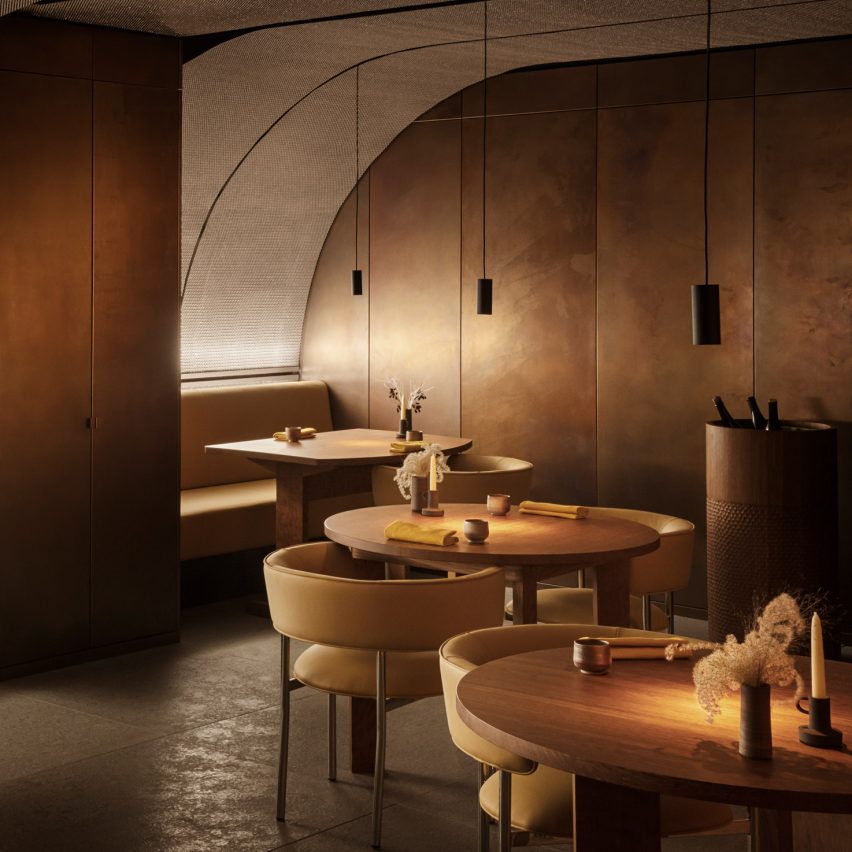
Ikoyi restaurant, UK, by David Thulstrup
Copenhagen-based designer David Thulstup carried out a complete renovation of the interiors of London’s Ikoyi restaurant.
Informed by spices from sub-Saharan Africa, he created a warm and earthy colour palette featuring a variety of materials including copper and oak.
Find out more about the Ikoyi restaurant ›
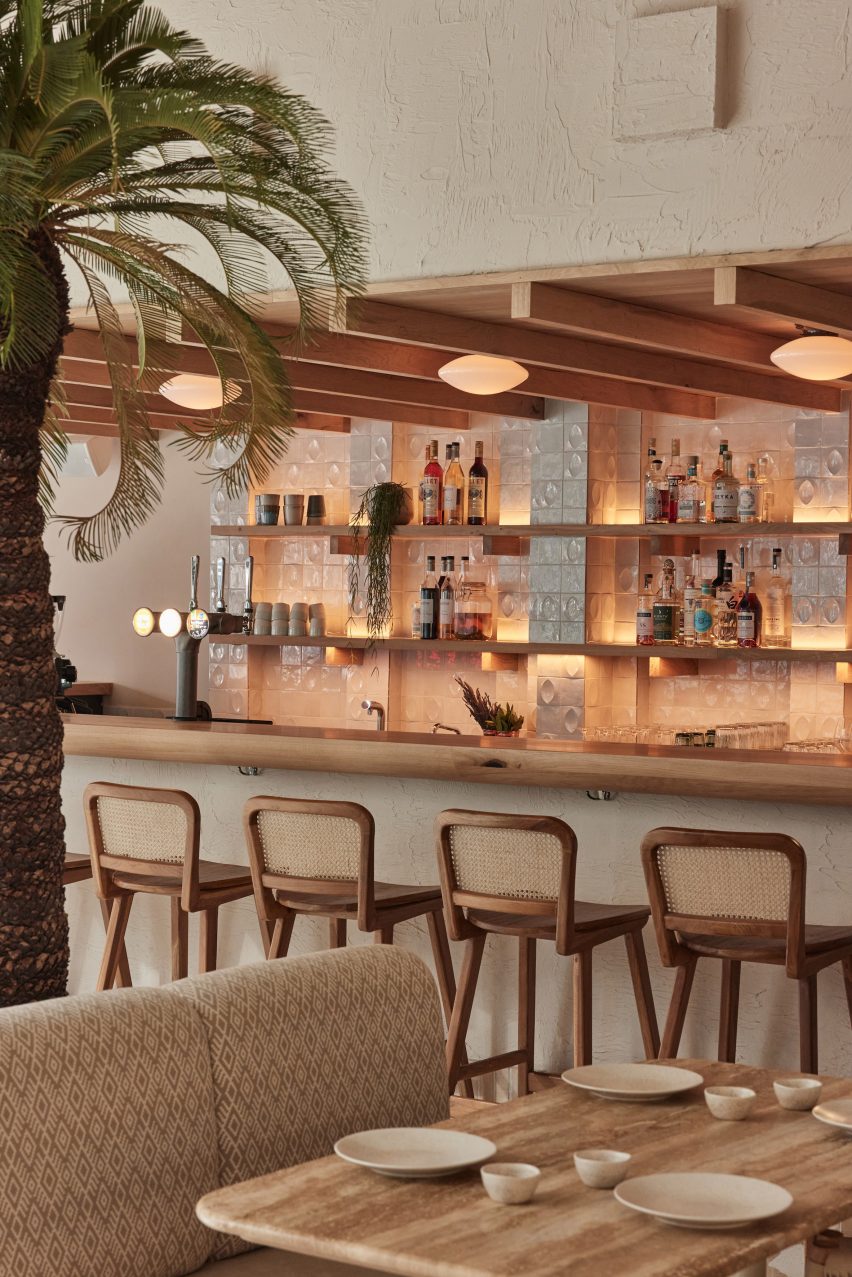
Milk Beach Soho, UK, by A-nrd
Natural materials feature in this eatery designed by London design office A-nrd to resemble an Australian beach club.
The restaurant’s seating is made from timber and rattan, while sandy-hued Palladian terrazzo covers the floor.
Find out more about Milk Beach Soho ›
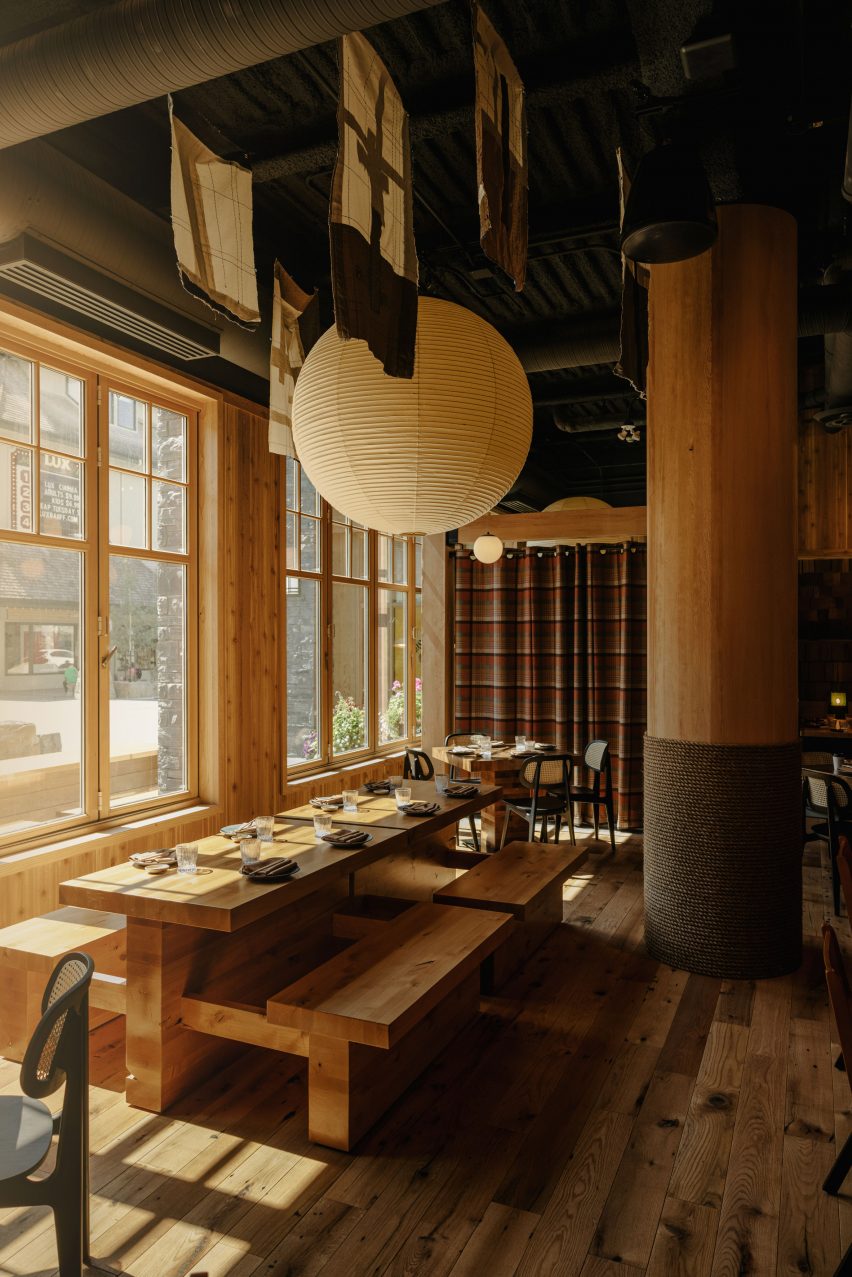
Hello Sunshine, Canada, by Frank Architecture
Japanese design elements like paper lanterns and ceiling-hung textile artworks feature in the interiors of the Hello Sunshine bar and restaurant in Alberta, Canada.
The studio incorporated plaid curtains, stone and wood to suit the restaurant’s mountain location.
Find out more about Hello Sunshine ›
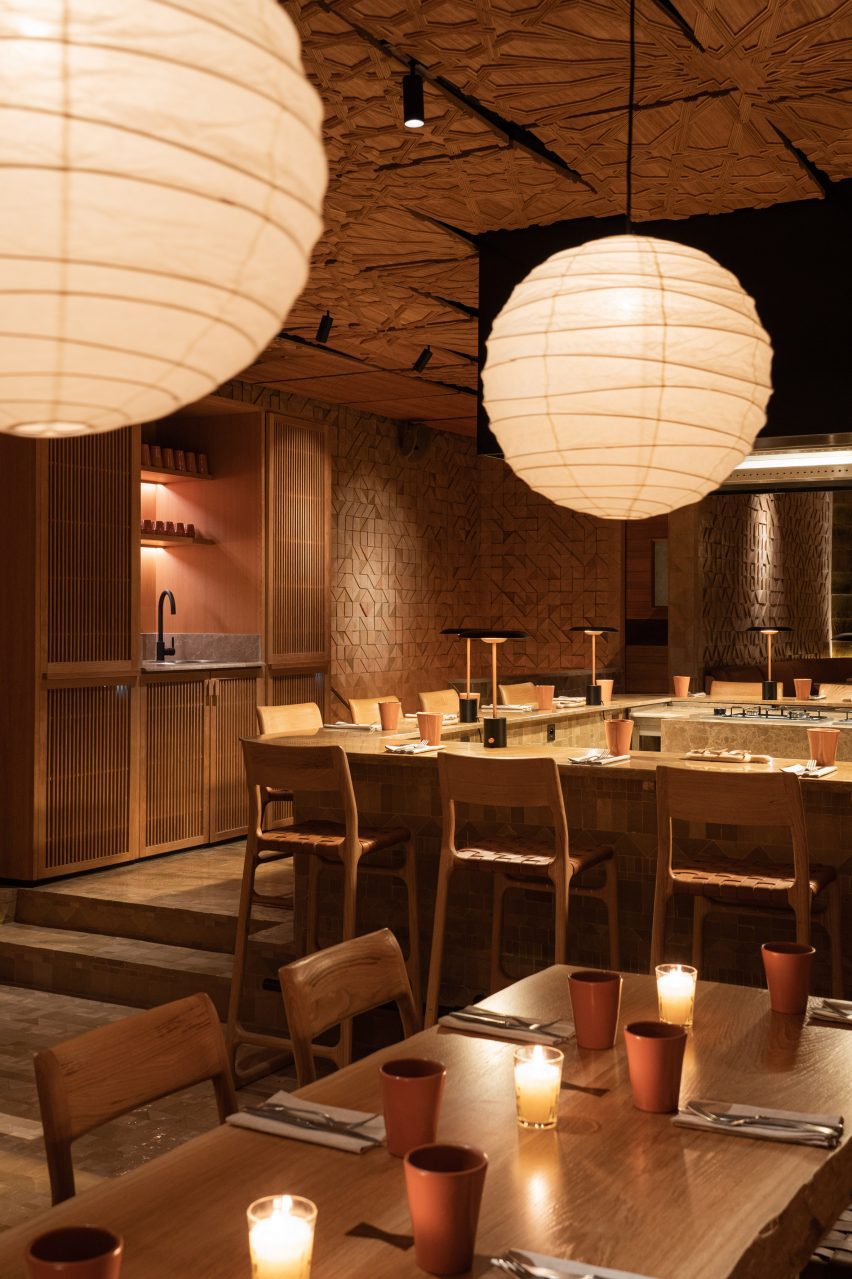
Sahbi Sahbi, Morocco, by Studio KO
Influenced by female chefs and Morrocan cuisine, Studio KO used earthy colours and natural materials like wood to create a warm and inviting space for guests at Sahbi Sahbi (above and top).
Finer details include rust-coloured ceramic urns, clay pots and pans and orange-brown paint used for an alcove above a sink.
Find out more about Sahbi Sahbi ›
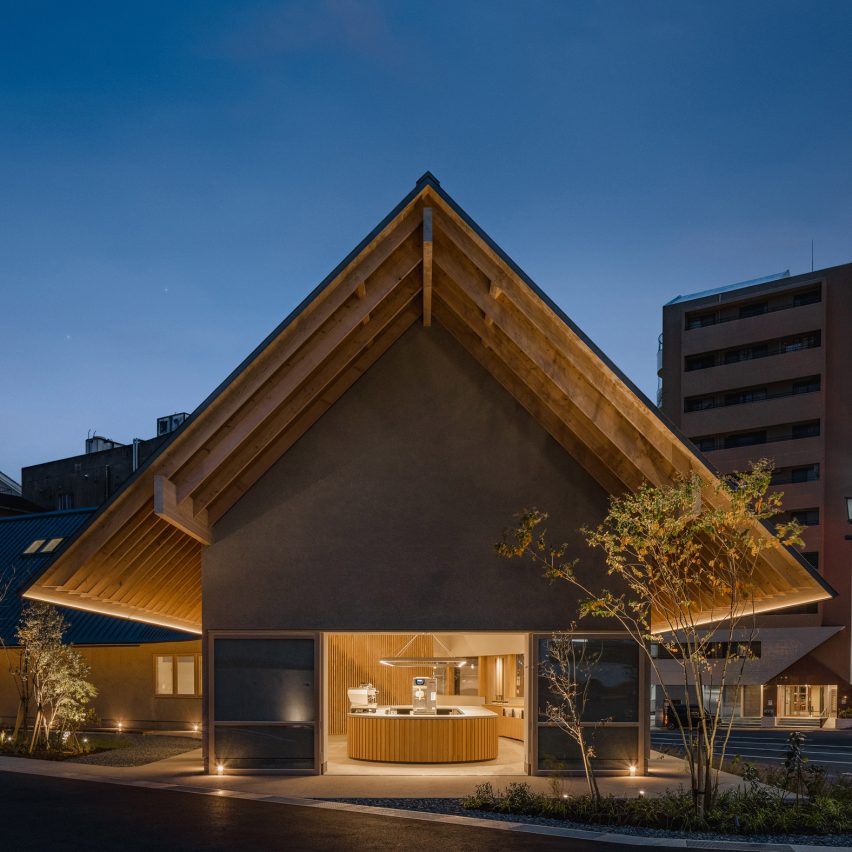
Saga Hirakawaya restaurant, Japan, by Keji Ashizawa
Materials “with a sense of simplicity” including wood and concrete were used to create minimalist interiors for a tofu restaurant in Japan’s Saga prefecture.
Wood was used for the entrance, windows and undersurface of eaves to match the wood from Ariake, a furniture brand also based in Saga. To complement its stripped-down interior, Japanese designer Keji Ashizawa added wooden furniture and pale grey walls.
Find out more about The Saga Hirakawaya restaurant ›
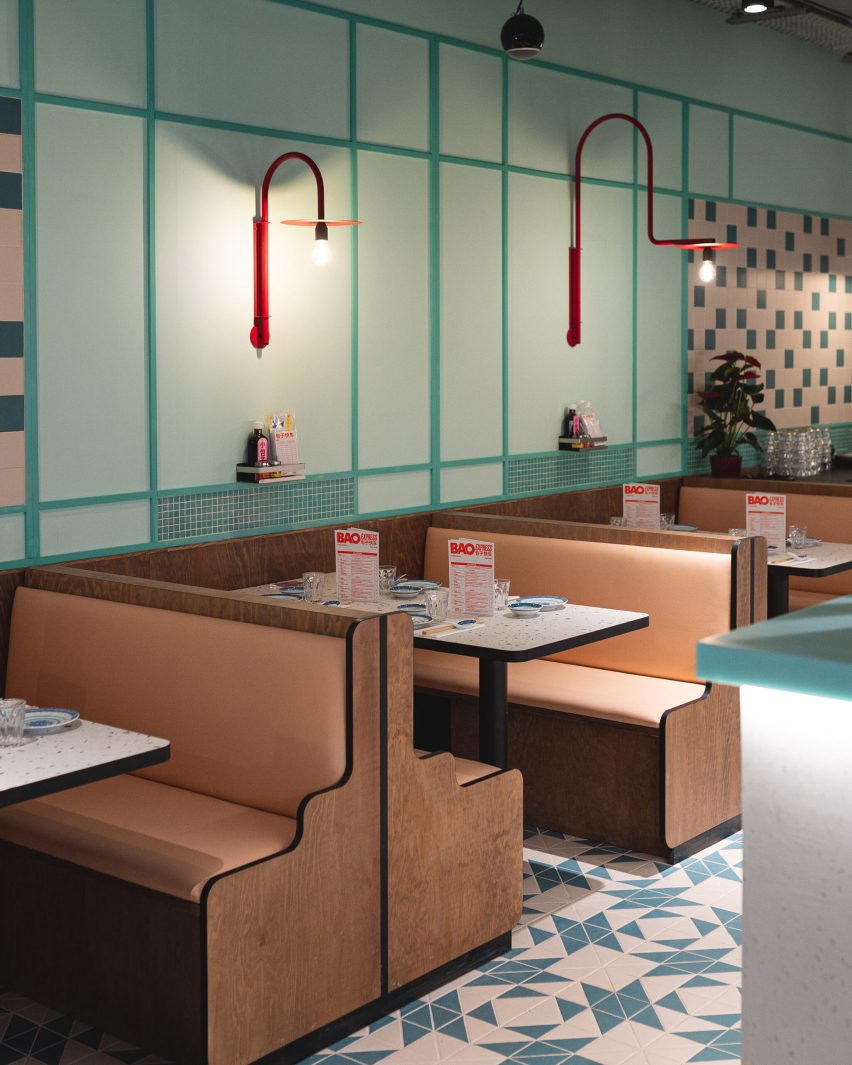
Bao Express, France, by Atelieramo
Traditional Hong Kong diners informed the design of Bao Express, Paris.
To recreate the 1970s Hong Kong urban atmosphere, the studio included celadon-green walls and curvaceous wooden booths. Pastel colours and neon lights also feature.
Find out more about Bao Express ›
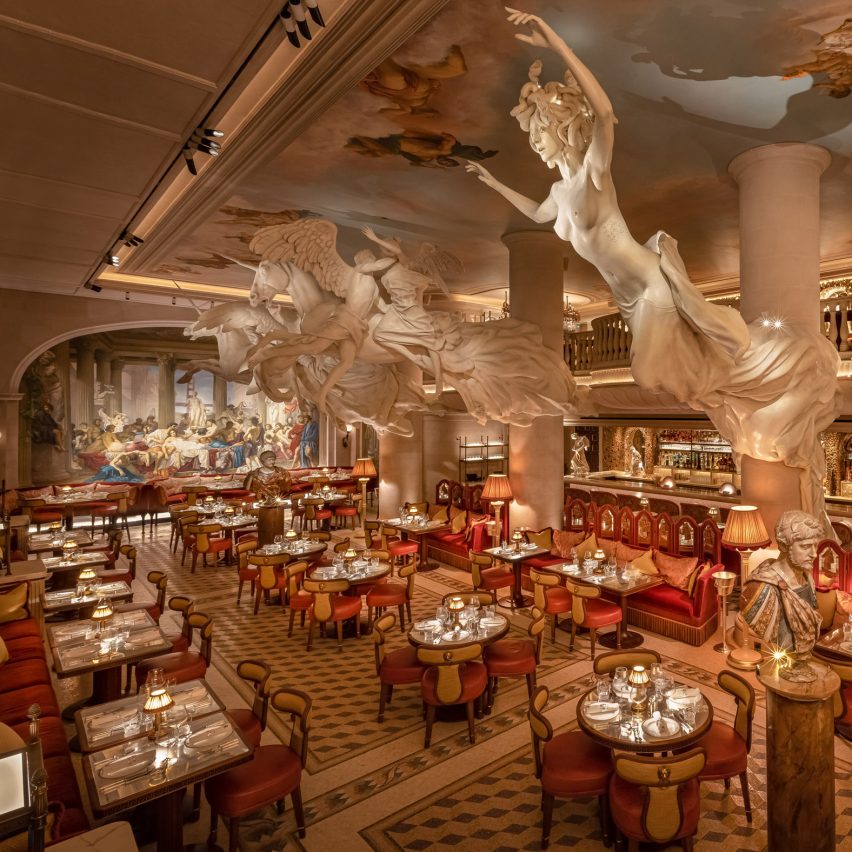
Bacchanalia London, UK, by Martin Brudnizki Design Studio
Martin Brudnizki Design Studio was informed by classic Greek and Roman mythology when designing the interiors of this London restaurant.
Sculptures more than 2,000 years old can be found at the bar and five specially-commissioned monumental statues by Damien Hirst dominate the main dining room.
Find out more about Bacchanalia London ›
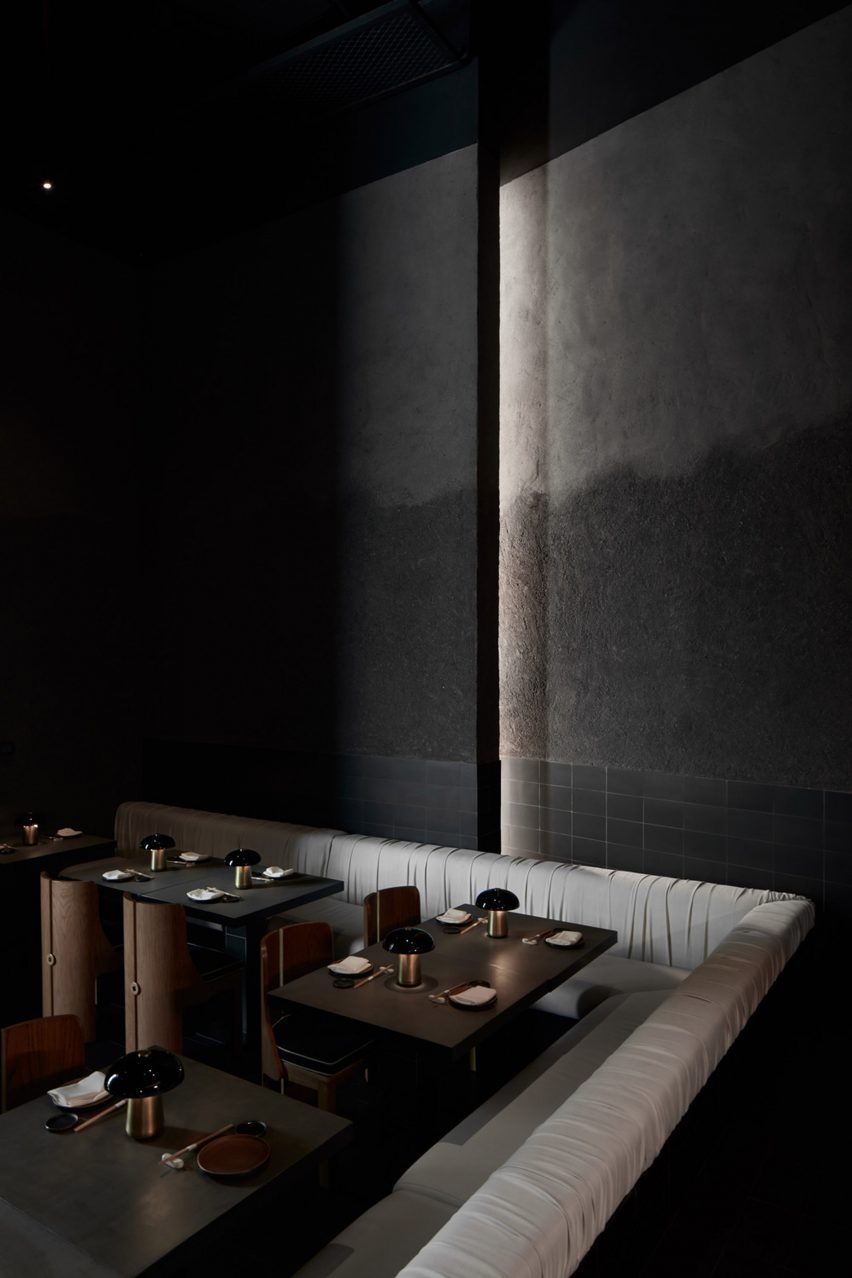
Origami, Dubai, by VSHD Design
A moody and dark interior was created for a sushi restaurant in The Dubai Mall, United Arab Emirates.
To replicate the atmosphere of Japanese underground sushi bars, VSHD Design used textured grey plaster, matte-black tiles and dramatic low lighting.
Find out more about Origami ›
Follow Dezeen on Pinterest
Pinterest is one of Dezeen’s fastest-growing social media networks with over 1.4 million followers and more than ten million monthly views. Follow our Pinterest to see the latest architecture, interiors and design projects – there are more than four hundred boards to browser and pin from. Currently, our most popular boards are Apartments and Concrete houses.

